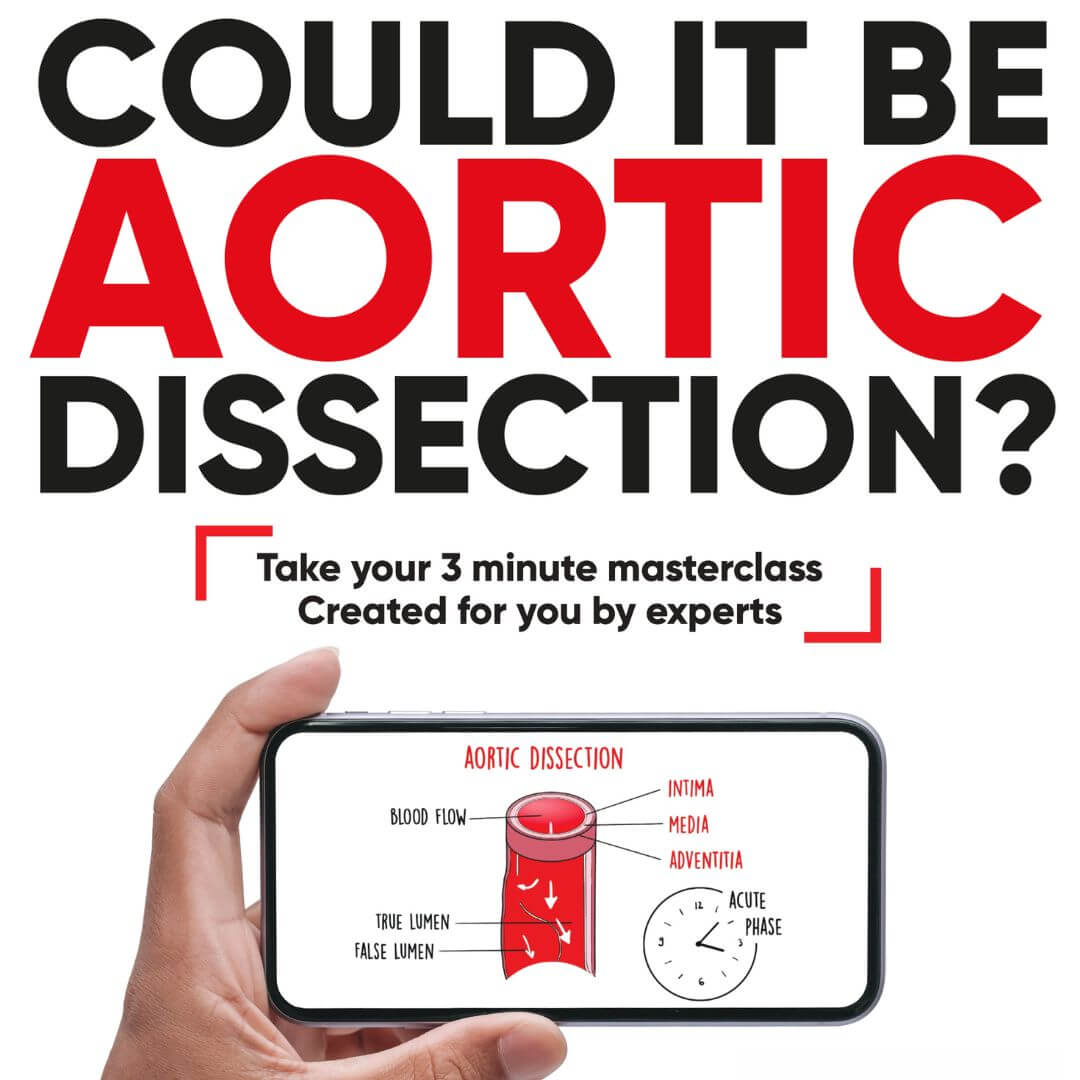Managing blood pressure is a critical component of care for individuals living with or recovering from an aortic dissection. High blood pressure is one of the most significant risk factors for aortic dissection and can increase strain on the aorta, potentially leading to further complications. This is why achieving and maintaining optimal blood pressure levels is critical to promote healing and minimise the risk of additional problems.
To provide patients and their families with the tools they need, we’ve created a comprehensive resource that combines expert information with practical guidance. This includes a webinar featuring Dr Vikas Kapil, a leading expert in Cardiovascular Medicine and Clinical Pharmacology at Barts Heart Centre, along with Valérie and Carl, survivors of a type A aortic dissection,
During the webinar, Dr Kapil shared valuable insights into understanding blood pressure readings, the importance of proper home monitoring techniques, and the role of lifestyle changes and medication in managing blood pressure effectively. He also took questions directly from patients, addressing real-life challenges and offering actionable suggestions.
A Resource Designed for Patients
The accompanying guide builds on the foundation laid in the webinar. It offers information specific to the needs of aortic dissection patients. Topics include practical steps for home monitoring, an overview of medications often prescribed, and tips on maintaining a heart-healthy lifestyle through diet, stress management, and physical activity. The guide also explores important considerations for special circumstances, such as managing blood pressure during pregnancy or addressing low blood pressure that can occur due to medication adjustments or recovery.
While the guide provides an overview of these key areas, it also emphasises the importance of working closely with healthcare providers. From setting personalised blood pressure targets to understanding potential side effects of medication, a strong partnership with your medical team is essential for effective management.
Access the Full Resource
This comprehensive resource, featuring the webinar recording and the detailed guide, is now available through our resources platform. Whether you’re newly diagnosed, recovering, or looking for ways to enhance your current blood pressure management strategy, these tools are designed to empower you with the knowledge and support you need.
To access the webinar and guide, simply register for free on our platform.
Questions Answered
During the webinar, patients and family members had the opportunity to ask Dr Vikas Kapil their most pressing questions about managing blood pressure after an aortic dissection. These address a variety of topics, from medication concerns to lifestyle adjustments, providing practical advice and reassurance for those navigating this condition.
Here are a few of the questions discussed during the session; all of the questions, along with answers, are available by accessing the guide.
-
Which blood pressure number is more important, systolic or diastolic?
Dr Kapil emphasised that both numbers are important, but clinicians often focus on the worst of the two if one is outside the target range. The systolic (top number) represents the pressure when the heart contracts, while the diastolic (bottom number) reflects the pressure when the heart relaxes.
-
Why is my blood pressure higher in the morning?
Dr Kapil explained that blood pressure naturally rises in the early morning due to the body’s production of wake-up hormones like cortisol and adrenaline. This is a normal physiological response, but measurements should still be taken before taking morning medications to assess baseline control.
-
What kind of blood pressure monitor should I use?
Upper arm blood pressure monitors are preferred for accuracy. Devices should be validated by organisations like the British and Irish Hypertension Society. Wrist monitors, while available, are less reliable and more difficult to use correctly.
-
Does eating affect blood pressure readings?
Blood pressure tends to decrease slightly after eating due to hormones involved in digestion. Dr Kapil advised waiting at least an hour after meals before measuring blood pressure to avoid artificially low readings.
-
How do I know if my blood pressure cuff is the right size?
The cuff size should match the circumference of your arm. Using a cuff that is too small can overestimate blood pressure, while a cuff that is too large can underestimate it. Most devices provide size guidelines, or a pharmacy can assist in selecting the correct size.
-
Can stress or anxiety affect blood pressure?
Yes, stress and anxiety can cause temporary increases in blood pressure due to the release of adrenaline. Dr Kapil encouraged incorporating relaxation techniques, like mindfulness or breathing exercises, during measurements to ensure more accurate readings.
The Importance of Personalised Care
Blood pressure management is not a one-size-fits-all solution, particularly for aortic dissection patients. The guide and webinar emphasise the role of healthcare providers in creating a personalised care plan. Whether it’s selecting the right combination of medications or determining safe physical activities, collaboration with a medical team is essential.
The guide also addresses the emotional challenges many patients experience. Living with aortic dissection can be overwhelming, but tools like support groups and counselling are highlighted as ways to reduce feelings of isolation and empower patients to take control of their health.
A Lifeline for Aortic Dissection Patients
This resource is part of a wider collection we have developed to support patients and their families, providing practical tools and trusted information for managing aortic dissection and related challenges. These resources have been hugely popular, helping countless individuals navigate their journey with greater confidence and understanding. We are committed to continuing to offer accessible, expert-led content tailored to the needs of patients.





